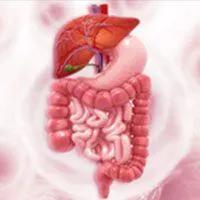
Dr. Hecht on the Symptoms and Diagnosis of ESCC

J. Randolph (Randy) Hecht, MD, discusses the common symptoms of esophageal squamous cell carcinoma.
J. Randolph (Randy) Hecht, MD, a professor of Clinical Medicine at the David Geffen School of Medicine of University of California, Los Angeles (UCLA), and the director of the UCLA Gastrointestinal Oncology Program, discusses the common symptoms of esophageal squamous cell carcinoma (ESCC).
The majority of patients with ESCC are diagnosed relatively late in their disease, and many patients do not have symptoms at the onset of the ESCC, Hecht explains. Patients who are diagnosed with ESCC tend to be smokers and drinkers, and when they begin to exhibit symptoms of ESCC, they could experience dysphasia or difficulty swallowing. However, patients may address these symptoms by changing their eating habits and how they chew their food, which prevents them from seeking medical care, Hecht notes. Additional symptoms associated with ESCC include unexplained weight loss, hiccups, vomiting with streaks of blood, and streaks of blood in mucus coughed up from the lungs.
Any patients who develop dysphasia or difficulty swallowing should seek immediate medical evaluation, Hecht emphasizes. Since patients do not seek early medical care, many patients with ESCC in the United Stated are diagnosed with locally advanced or metastatic disease when they are evaluated, Hecht continues.
ESCC is more common in other parts of the world compared with the United States and Western Europe, Hecht says. Among patients with esophageal cancer in the United States, ESCC comprises a minority of the population. In previous decades, ESCC did represent the majority of esophageal cancers in the Unites States; however, ESCC has been overtaken by esophageal adenocarcinoma, Hecht adds. According to the National Cancer Institute, esophageal adenocarcinoma accounts for approximately 80% of esophageal cancer diagnoses in the United States. Due to the increased rates of esophageal adenocarcinoma, ESCC did fall to the wayside regarding clinical trials, although more studies are now being conducted in this space.






































